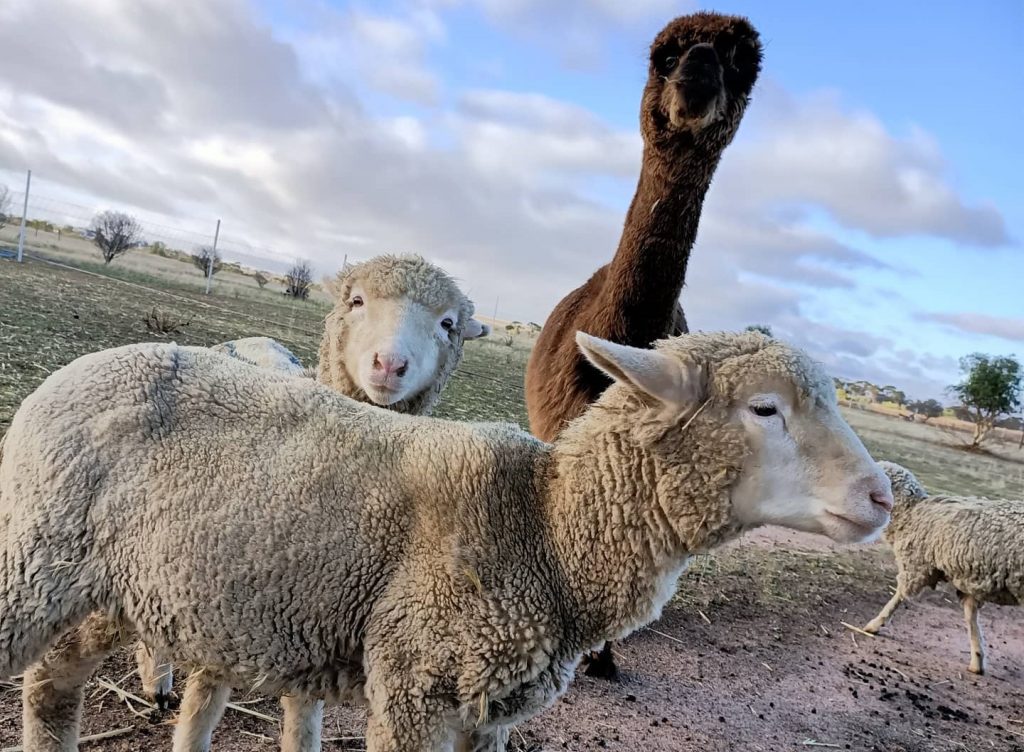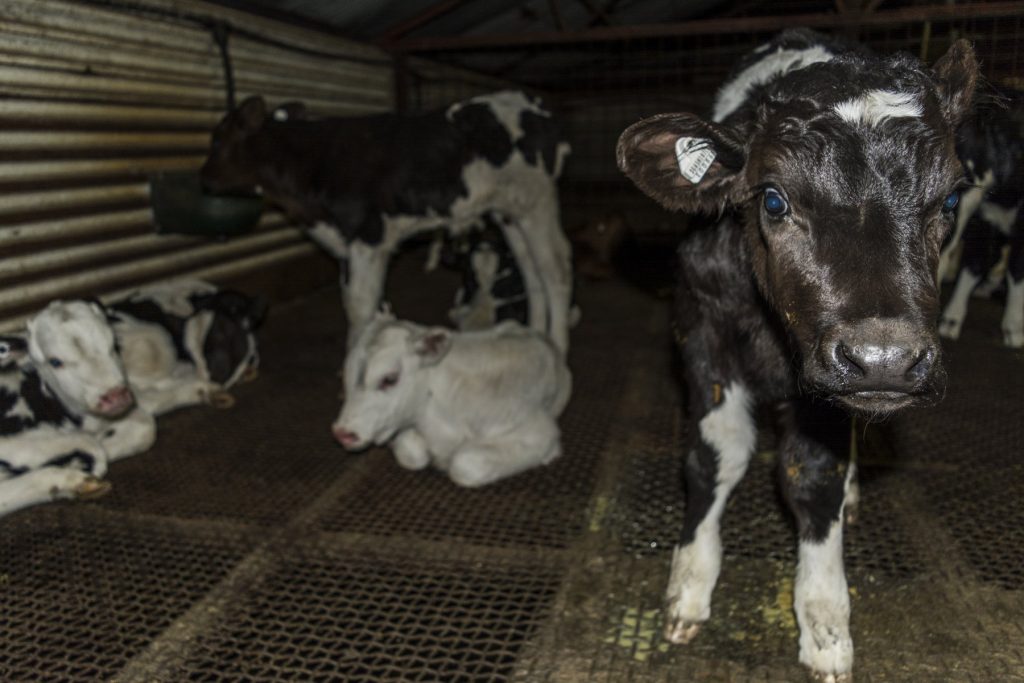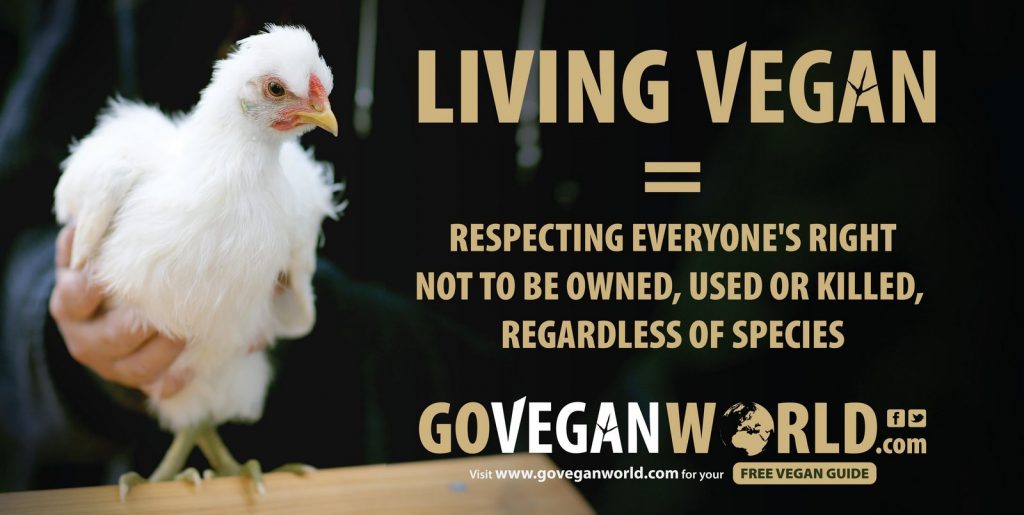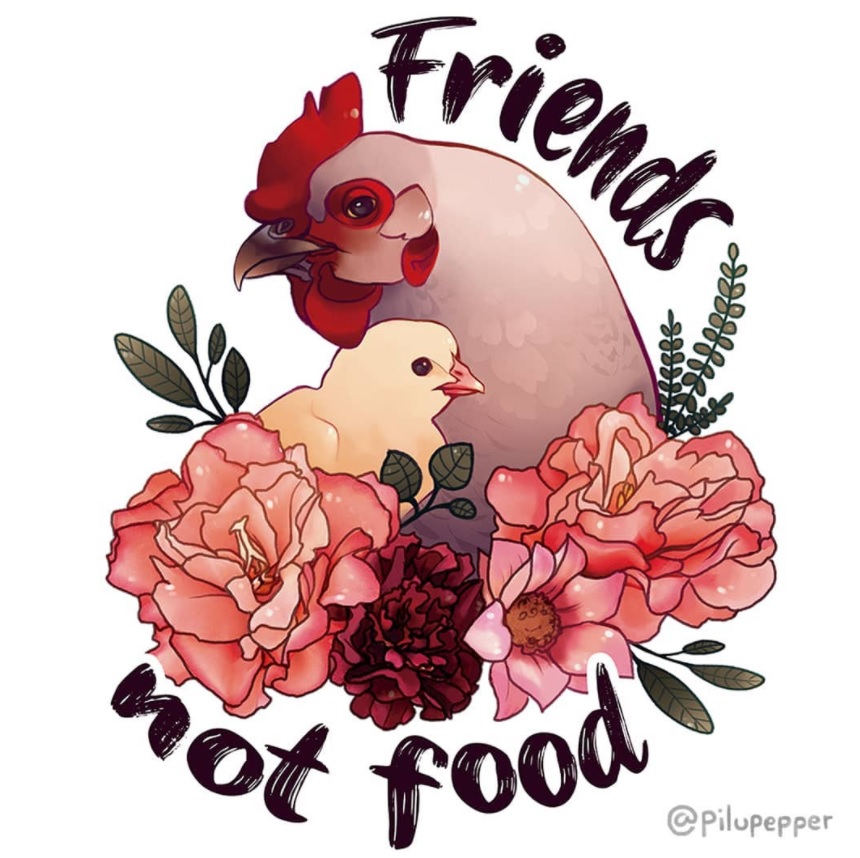
Necessary suffering?
It is accepted by nearly everyone that “unnecessary suffering” to animals is wrong. Many Australians are outraged by Japanese whaling, Canadian seal clubbing, live animal export to the Middle East, and cruelty to cats and dogs.
These are obviously acts that cause “unnecessary suffering” to animals, and a vegan lifestyle clearly opposes such cruelty, but this lifestyle also opposes similarly unnecessary, but much more socially accepted, examples of unnecessary animal suffering.
Products such as meat, dairy, eggs and leather all necessarily involve a lot of suffering. Animals raised for such products suffer in a number of ways, from pain, fear, confinement and sadness (such as when a female cow has her baby taken away so her milk can be used for human consumption), and of course they are slaughtered.

Consuming animal products is totally unnecessary but directly and necessarily leads to animal suffering. The fact that we don’t need these products is shown by the growing numbers of vegans from all walks of life who are living very healthy lives and easily meeting all of their dietary requirements while avoiding the use of animal products.
The Game Changers highlights elite athletes who eschew animal products and excel in a range of sports.
Image: Getty Source
Mainstream health organisations such as the American Dietetic Association also advise that animal products are in no way necessary for our health. Their position is that: ‘Appropriately planned vegetarian diets, including total vegetarian or vegan diets, are healthful, nutritionally adequate, and…appropriate for individuals during all stages of the life cycle, including pregnancy, lactation, infancy, childhood, and adolescence, and for athletes.’
So the consumption of animal products causes suffering and death to animals for only trivial benefits to people. Whatever the justification we give for consuming animal products – whether it is taste, enjoyment, convenience, habit, tradition – we certainly have no health or survival requirement for such products. The frivolous benefits gained through consuming animal products are prioritised over the suffering and lives of the animals being consumed.
I’m already doing my bit for animals – I’m a vegetarian
There are two main reasons why we promote veganism over vegetarianism. First of all, veganism puts into practise vegetarians’ desire to not kill animals for food. Dairy and eggs are both just as unnecessary as meat and, just like meat; they involve the killing of animals.
The RSPCA, who are not opposed to people consuming animal products such as dairy and eggs, state that the killing of animals is standard practise in these industries. The RSPCA explain a necessary component of the dairy industry: ‘In order to produce milk cows have to give birth to a calf every year. Bobby calves are the unwanted male offspring born to dairy cows…At around four days old these calves are then transported to an abattoir to be slaughtered for veal.’

The RSPCA also reveal a similar process in the egg industry: ‘Male chicks are considered an unwanted byproduct of egg production and are killed and disposed of shortly after birth… Male chicks are killed for two reasons: they cannot lay eggs and they are not suitable for chicken-meat production.’

Peter Singer and Jim Mason sum up the suffering and death in both the egg and dairy industries in their book The Ethics of What We Eat (pages 255-256):
‘Suppose, however, that you object to the idea of killing young, healthy animals so you can eat them. That ethical view leads many people to become vegetarian, while continuing to eat eggs and dairy products. But it is not possible to produce laying hens without also producing male chickens, and since these male chicks have no commercial value, they are invariably killed as soon as they have been sexed. The laying hens themselves will be killed once their rate of laying declines. In the dairy industry much the same thing happens – the male calves are killed immediately or raised for veal, and the cows are turned into hamburger long before normal old age. So rejecting the killing of animals points to a vegan, rather than a vegetarian, diet.’
The other reason why veganism, and not just vegetarianism, is important in addressing unnecessary suffering to animals is that vegetarianism is a diet, whereas veganism is a lifestyle. This means that vegetarianism only requires that animals are considered when someone eats, whereas veganism means that animals are always considered in people’s choices, not just for food.
Veganism requires people also avoid other instances of animal suffering beyond food, such as clothing products like leather, as well as household products such as soaps and shampoos that contain animal-based products or are tested on animals. These products involve a lot of unnecessary suffering.

It’s okay, my eggs are free-range
Labels such as “free-range”, “organic” and “humane” on animal-derived products may make us feel better about consuming animal products, however, they do not necessarily guarantee significantly better treatment than factory farmed or caged animal products. Direct Action Everywhere Australia released an expose of egg farming in Western Australia in 2021.
Even in some hypothetical situation where “humane” meat, dairy and egg products actually did significantly improve treatment and conditions, we are still placing our enjoyment of consuming animal products above the lives of animals.
The interview below, with scientist Dr Jonathan Balcombe, also makes this point about the slaughter of animals being harmful in itself, based on his research into animal behaviour.
Regardless of the “humane” label, the males are still killed soon after birth in the egg and dairy industry. The females in these industries are also killed, in the same slaughterhouses as those animals raised for meat, as soon as they are no longer “productive”. These realities mean that there is always suffering and death in these industries. In some cases there may be less suffering, but less unnecessary suffering is still unnecessary suffering.
Veganism is the best way to reduce the demand for animal products, which therefore reduces the amount of animals who suffer and are killed for trivial human interests. Although one person going vegan is not going to automatically end unnecessary suffering to animals, it is certainly makes a difference. By going vegan you can totally remove your contribution to the unnecessary suffering of animals and live your life in a way that demonstrates that causing unnecessary suffering to animals is not only wrong, but totally unnecessary.


